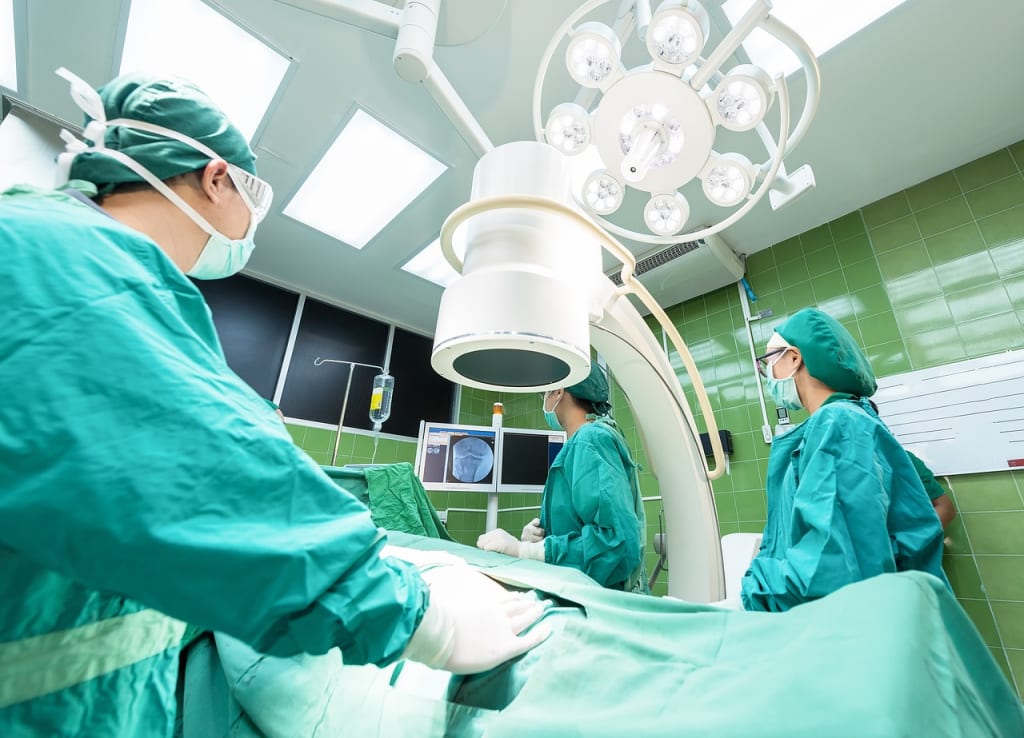
Discover how groundbreaking technologies are reshaping the future of healthcare, empowering medical professionals and improving patient outcomes.
Introduction:
In today's fast-paced world, technology has made its way into various industries, including healthcare, bringing about remarkable transformations. With state-of-the-art devices and powerful software solutions, technology is revolutionizing medical diagnosis and treatment, leading to more accurate diagnoses, improved patient care, and increased efficiency within the healthcare system. In this article, we'll dive into the exciting role of tech in healthcare and share real-life examples of how innovative solutions are shaping the medical landscape.
1. Artificial Intelligence (AI) in Medical Imaging:
Artificial Intelligence (AI) is playing a significant role in revolutionizing medical imaging, enabling faster and more accurate diagnoses. Advanced algorithms can analyze medical images, such as X-rays, MRIs, and CT scans, assisting radiologists in detecting abnormalities and providing precise interpretations. For instance, AI-powered software like Aidoc utilizes deep learning algorithms to prioritize urgent cases, assisting radiologists in early detection of life-threatening conditions like pulmonary embolisms and brain hemorrhages.
Real-life example: In a study published in the journal Nature, an AI system outperformed human radiologists in accurately diagnosing breast cancer from mammograms, highlighting the potential of AI in enhancing diagnostic accuracy.
2. Telemedicine and Remote Patient Monitoring:
Telemedicine has gained significant traction, especially during the COVID-19 pandemic, by offering remote healthcare services to patients. Through video consultations and digital platforms, patients can connect with healthcare professionals from the comfort of their homes, reducing the need for in-person visits. Additionally, remote patient monitoring devices like wearable sensors and mobile apps enable doctors to track patients' vital signs and health data in real-time, facilitating proactive interventions and personalized care.
Real-life example: The American Heart Association reported that telemedicine played a crucial role in managing cardiovascular patients during the pandemic, ensuring continuous care while reducing the risk of virus transmission.
3. Precision Medicine and Genomics:
Advancements in genomic sequencing and analysis have opened up new possibilities for precision medicine. By analyzing an individual's genetic makeup, doctors can tailor treatment plans and medications to meet the specific needs of the patient, resulting in more effective and personalized therapies. For instance, in cancer treatment, genomic profiling can identify specific mutations or biomarkers that guide targeted therapies, leading to improved patient outcomes and minimized side effects.
Real-life example: The drug Herceptin, used in breast cancer treatment, targets a specific genetic alteration known as HER2-positive, allowing for more precise treatment and higher success rates.
4. Robotics in Surgery:
Robotic-assisted surgery has transformed the field of healthcare by enhancing surgical precision and reducing invasiveness. Robotic systems like the da Vinci Surgical System enable surgeons to perform complex procedures with enhanced dexterity and visualization. The robotic arms translate the surgeon's movements into precise actions, reducing the risk of human error and improving patient safety.
Real-life example: In 2019, surgeons in India successfully performed a complex robotic-assisted heart surgery on a 71-year-old patient, showcasing the potential of robotics in intricate surgical procedures.
Conclusion:
Technology has undeniably made a profound impact on healthcare, revolutionizing medical diagnosis and treatment. From AI-powered medical imaging and telemedicine to precision medicine and robotic-assisted surgery, these advancements empower medical professionals, improve patient outcomes, and reshape the future of healthcare. As technology continues to evolve, we can anticipate further breakthroughs that will transform the healthcare landscape, making it more efficient, accessible, and patient-centered.
Discover the transformative power of technology in healthcare as we explore its vital role in revolutionizing medical diagnosis and treatment. Join us on a journey where innovation meets compassion, shaping a healthier future for all.





Comments
There are no comments for this story
Be the first to respond and start the conversation.